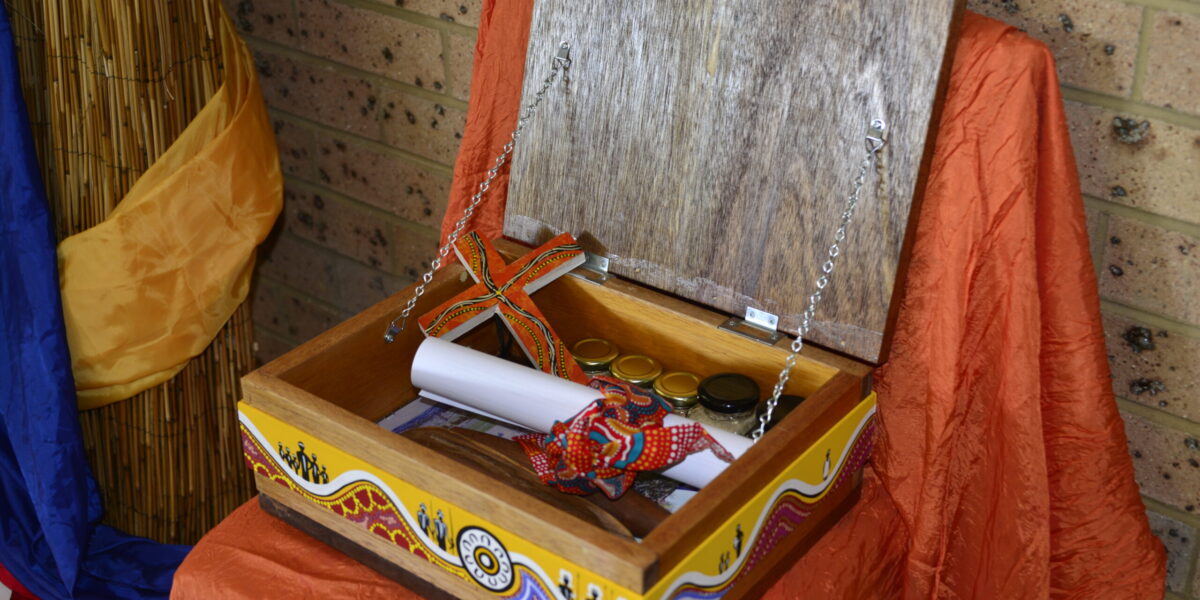NEWTON, Kansas (Mennonite Mission Network) – Some Australians celebrate Jan. 26 with parades, fireworks and barbecues. But Aboriginal and Torres Strait Islander peoples call Australia Day by another name: Survival Day. All recognize the date as the anniversary of British proclamation of sovereignty over the land now known as Australia.
It was on this day in 2019 that Anabaptists from across Australia and New Zealand gathered with Aboriginal and Torres Strait Islander peoples to share in naming injustices, to reflect, and to sign a historic treaty between the groups.
The treaty was the capstone to the evening’s "Truth, Justice and Conciliation Commission," part of the Anabaptist Association of Australia and New Zealand’s (AAANZ) biannual "On the Road Conference" that took place Jan. 25-28 in Sydney.
"It was a powerful evening," said Mark Hurst, a pastor and resource person with AAANZ. "There were tears and expressions of joy." Mark, along with his wife, Mary, serve as mission associates with Mennonite Mission Network.
The commission event was opened and closed by Aunty Jean Phillips, a senior Aboriginal Christian leader, and Brooke Prentis, Aboriginal spokesperson for Common Grace, a Christian social justice movement. The evening included a time of truth-telling and repentance from non-Aboriginal speakers who detailed injustices done to Aboriginal peoples, including massacres, stolen land, stolen wages, and stolen generations – Aboriginal and Torres Strait Islander children who were forcibly removed from their families through government and Christian church agencies up until the 1970s.
"Repentance is powerful when victims can name specific things that were done and perpetrators listen," said Sharon Norton, co-director for Africa and Europe with Mennonite Mission Network. "That’s what I saw happen during the evening."
The treaty itself was signed by Aboriginal leaders and executive committee members of AAANZ. It was placed in a wooden box designed and painted by Aboriginal artist Safina Stewart, alongside other symbolic items, including sand from different regions of Australia, water, a painted cross, and Aboriginal clapsticks – an instrument traditionally used to accompany music.
The treaty, while largely symbolic, serves as a covenant between AAANZ and Aboriginal and Torres Strait Islander peoples to bear witness to the reconciliation yet to be achieved with the larger Australian Christian church and the national government. The government of Australia, unlike other nations, has no treaty with its indigenous peoples, despite calls to do so.
"As Aboriginal and non-Aboriginal exiles, we have the opportunity to do what this country has failed at," said Brooke Prentis at a Table Fellowship webinar by AAANZ. "We have the opportunity to achieve reconciliation. A friendship, through a knowledge of the Creator, taught by Aboriginal peoples as we sit together … and led by Aboriginal leaders."







